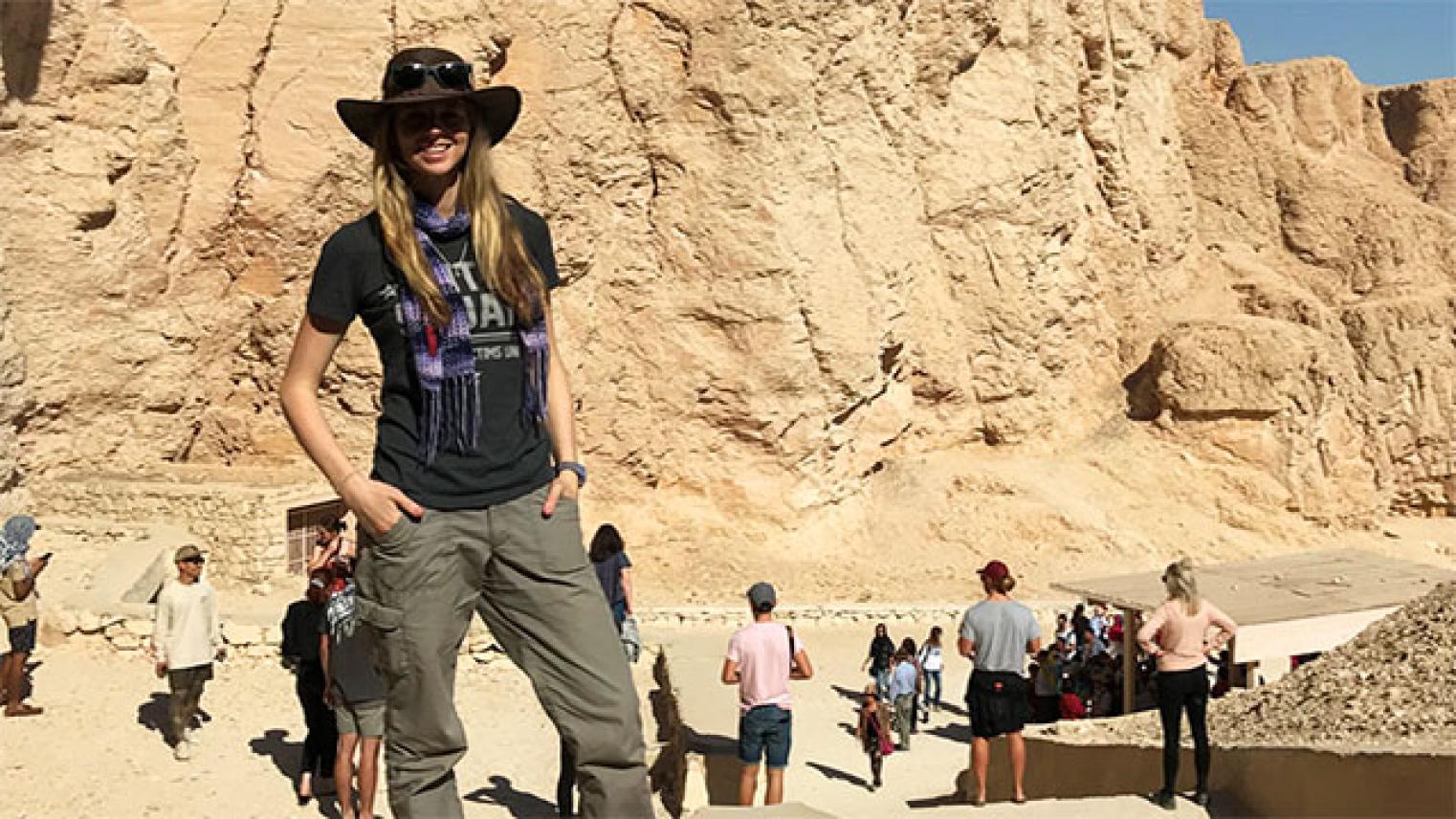Meet Georgie Hicks

I was woken up at 3:15am on my 18th birthday because it was time for me to get up and con a warship through the Malacca Strait enroute to Singapore.
In the weeks previous, I had been force assigned to Operation Resolute at Ashmore and Christmas Islands, had taken part in international military exercises for the first time, and had hiked and hitch-hiked alone in Malaysia, amongst other adventurous pursuits.
Sometimes I wonder what my life would have been like if I hadn’t joined the navy as a Maritime Warfare Officer at the ripe old age of 17, but doing so opened my eyes to the complexities of the world and led me to become the assertive, indepenent and adventurous person I am today.
I was in navy for nigh on eight years, during which time I studied a degree in maths and physics at The Australian Defence Force Academy (ADFA), and predominantly worked in border protection and maritime operations.
But a career as a Maritime Warfare Officer was not to be, and when I left the organisation, I started a small business as an artist, and put everything in storage and went travelling for one very excellent year. I was in the US prior to and during their election, worked in a hostel in Kosovo, taught English to teenagers in Poland, and kept watch for polar bears on an overnight hike in Svalbard. I visited Transnistria, Andorra, Morocco and Latvia, Palermo, Helsinki, Ljubljana, and Florida—I became addicted to learning about history, culture, politics, and people.
I eventually returned to Canberra and reinvented myself as a data analyst, undertaking government contracts in data analytics and project management. I embarked on more adventures when I could—the Middle East, the Caucasus, South America, the Pacific—and around that time, I commenced studying the Master of International Relations program at The Australian National University (ANU).
I decided to study International Relations for two reasons. First, because I sought a deeper understanding of the politics, history, ideas and influences that shape what I see and experience on my travels, and second, because I had developed a strong interest in polar affairs, and wanted to pursue a career in that area.
I have become passionate about Antarctic strategy and security, especially international relations in contested polar maritime zones. I understand the principles that underpin Antarctic science, from satellite systems to sea ice formation, and my aim of studying at ANU is to better understand the international political forces that shape international (Antarctic) cooperation and the potential for conflict.
Ultimately, I want to bridge gaps between scientific and political Antarctic discourses to help develop meaningful, effective, cooperative policy.
To anyone with a STEM background looking to study International Relations: don’t be put off by the potentially daunting switch from the world of scientific facts and quantified uncertainty to the inexact, subjective world of politics. It can be hard to make that cognitive switch at first, but learning to think and write in different ways and understanding global forces can only help with your endeavours, even if those endeavours remain in the realm of science.
These days I work full-time in an international relations cross data analytics role, study at 75 per cent full-time, and continue to run my art business, which focuses mostly on military and nautical art.
For more information about the Master of International Relations visit this webpage.